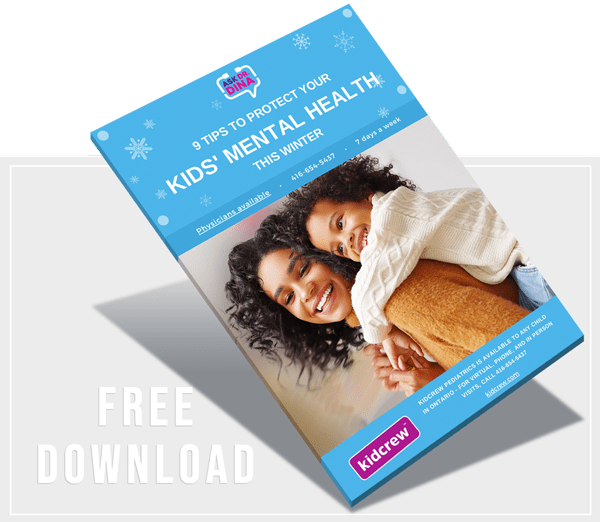Support your kids’ immune system
Living in the time of a Pandemic can provoke anxiety and fear in almost anyone. Furthermore, a pandemic does not magically curtail the seasonal spread of colds and flu. While keeping distance, wearing a mask, and hand washing are all fundamental to avoiding community spread infections. We can further protect ourselves and our kids by maintaining a strong and healthy immune system. Here are five supplements that I commonly recommend to support the immune system, prevent infection, ease symptoms, and shorten a disease’s duration.
Probiotics
Probiotics are healthy bacteria found in the mucus membranes of healthy individuals. These friendly bacteria can help us digest food, regulate bowel activity and even modulate our immune system. When specific strains of probiotics are introduced into our intestine, they help repair intestinal cells, boosting the production of antimicrobial substances.
A double-blinded placebo-controlled trial on 326 children aged 3-5 years found that probiotic supplementation twice per day for six months resulted in: fever reduction 53-73%, cough reduction 41-62%, decreased runny nose 28-59%, reduced need for antibiotics 68-82%, and reduced absence from school 28-32%.
Elderberry
One of my favorite recommendations for kids is elderberry syrup. Elderberry syrup tastes great and is safe for most kids to take. The syrup contains compounds that inhibit bacteria and viruses associated with the common cold and flu.
One study demonstrated that an elderberry syrup possessed antimicrobial activity against both streptococci bacteria and influenza viruses. Another study looked at 312 air travelers flying from Australia to an overseas destination. Those travelers who took an elderberry extract before, during, and after travel had fewer colds, fewer sick days, and fewer symptoms.
Vitamin C
Vitamin C is perhaps one of the most well-known supplements for immune system support. Vitamin C is essential for our immune system because it helps immune cells go to the source, kill viruses and bacteria effectively, protect the body from damage and clean up after battling infections.
We are one of the only animals on earth that cannot make vitamin C from scratch and therefore need to acquire it from our diet. Furthermore, our bodies demand vitamin C increases exponentially when we are sick. Unfortunately, we tend to hibernate and eat less when we are sick, making supplementation potentially all the more critical.
Adequate vitamin C prevents infections, helps fight infections, and aids in recovery. The recommendation is 100-200mg/day of vitamin C per day; however, during an infection, the metabolic need increases, and requirements for vitamin C increases.
Even in 2021, vitamin C is the fourth most common nutrient deficiency in North America. Poor diet and more free radical exposure due to poor lifestyle choices are contributing factors. Excellent sources of vitamin C are broccoli, itrus Fruits, and berries.
Zinc
Zinc is another recommended supplement for cold and flu. Zinc is an essential component of the chemicals and enzymes that communicate during an infection.
As with vitamin C, during an infection, our needs for zinc increases. Zinc supplementation when we are sick can shorten the duration of illness. Good dietary sources of zinc include shellfish, meat, nuts, seeds and legumes. Supplementation may be required in a vegetarian or vegan diet.
Vitamin D
Vitamin D supervises the immune system. One important function of vitamin D is how it can modulate our immune system.
Studies have suggested that vitamin D can calm down and rev-up the immune system according to what our body needs it to do. This is why Vitamin D is considered crucial in autoimmune disorders as it is in infections.
When the supervisor is away, things can get a bit chaotic, and this may be why vitamin D deficiency is implicated in many chronic diseases of the immune system.
Canadians, have one of the highest rates of vitamin D deficiency in the world. Sunlight has long been our primary vitamin D source, making deficiencies common in those who are unable or unwilling to go outside often.
Studies have shown a higher incidence of upper respiratory tract infections in athletes who train in the wintertime and who are subsequently deficient in vitamin D. Supplementation had preventative and symptom reducing effects. Besides sunlight, some vitamin D dietary sources are fortified foods, fatty fish, beef liver, egg yolks, and cheese.
CAUTION:
Vitamins and minerals are generally very safe, but at high dosages can be dangerous, especially in children. Before supplementing on your own, it is always recommended to consult with a health care professional, such as a Naturopathic doctor.
Download this free resource – 9 Tips To Help Protect Your Kids’ Mental Health












